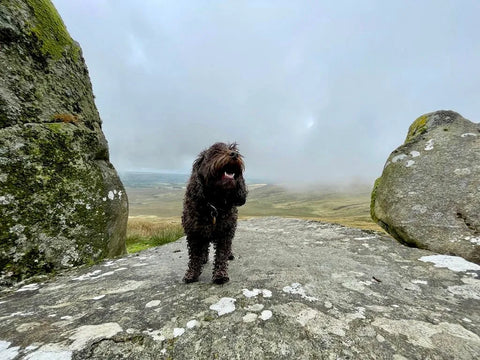
26, April 2023
Musings on Nature On The Board
It’s nearly eight months since we made Nature a director of Faith In Nature — giving the natural world a voice and a vote on all we do.
It felt like planting a seed in the business world — not knowing exactly what it would grow into. But though it is still early days, green shoots are appearing and we’re discovering more and more about it. It can be fragile, it can be forthright, it can be playful. But it is always transformative.
And Simeon, one of our Creative Directors, is sharing all of his personal feelings about the process over on his own blog, natureontheboard.com
It’s a space he felt was necessary to really dive deep into all the motivations behind the move, to explore new ideas for how it might work in the future and to share developments about Nature On The Board as it spreads beyond our boardroom and into other spaces too.
Snippets below...
SO HOW EXACTLY DOES NATURE SERVE AS A DIRECTOR OF A COMPANY?
 Photo by Alexandre Croussette on Unsplash Bison
Photo by Alexandre Croussette on Unsplash Bison
When I first called Earth Law Center and Lawyers For Nature – asking whether Nature could be the CEO of Faith In Nature – I had a hunch it might lead to an interesting answer, but no real understanding of the mechanics necessary to make it real.
Apart from a belief that Nature should have a say on the decisions that impact it, all I really knew was that some parts of the natural world – mostly rivers, it seemed – had recently been recognised as legal persons. Through environmental personhood, these rivers, mountains, ecosystems etc had gained legal rights and a ‘say’ (of sorts) on their treatment.
So taking this on face value, I figured if Nature could become a legal person – and in so doing make decisions in its own best interests – why couldn’t it also make decisions on behalf of a company that itself was trying to act in the interests of the natural world?
…Read more here
THE RIGHTS OF SONIC AND MAKING SPACE FOR EMPATHY IN BUSINESS

Nature On The Board gets called a lot of things. A non-human stakeholder model. A corporate governance overhaul. A piece of systems change thinking.
And it is all those things. But it’s also a lot simpler than that. It’s an assertion that Nature, in all of its multi species glory, has inalienable rights. And if we truly believe that statement — as I do — then there is an onus upon us to change the way we operate in relation to the natural world. Simply put, if Nature has rights, then it is immoral (even if it isn’t yet illegal) to continue acting as if it* doesn’t.
And this is where I don’t need to be an environmental lawyer or an academic to understand what the Rights of Nature should mean. I only need to be a human willing to be guided by my own heart. Or, as is more often the case, be guided by my* dog, Sonic.
…Read more here
AN ECOSYSTEM ENGINEER'S RESPONSE TO "BUT WHAT ABOUT THE PROFITS?"
 Photo by Bryce olsen on Unsplash
Photo by Bryce olsen on Unsplash
There is one question I’m asked over and over in relation to Nature On The Board. The wording changes, but essentially it’s: “But what about the profits?”
For those keen to perpetuate business-as-usual, the boardroom represents a safe space. It was created by humans, for humans — and the power dynamics within it are well established. Of course the assumption is that to introduce an uncontrollable element will disrupt this comfort.
But we need only look to the natural world itself to see examples of how (re)introducing the wild brings profound benefits. For centuries, we’ve busied ourselves with shaping the land around us to suit our own needs. Shaped by humans, for humans. It too became a safe space: predictable, ‘productive’ and controllable. But this safety too was a passing delusion. The reality, of course, is that when you shut out the wild, ecosystems collapse.
…Read more here



